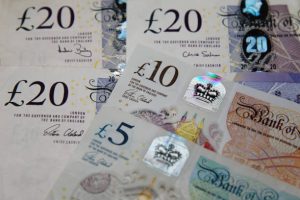Inflation has always been a crucial factor influencing the global economy, affecting everything from purchasing power to market behavior. In 2024, inflation continues to impact consumers in ways that are more pronounced than in previous years, especially when it comes to consumer confidence. As prices rise across multiple sectors, including food, housing, and energy, consumers face difficult financial choices. In this article, we will explore how inflation is affecting consumer confidence in 2024, the reasons behind it, and the broader economic implications.
What is Inflation and Consumer Confidence?
Inflation refers to the rate at which the general level of prices for goods and services rises, leading to a decrease in purchasing power. It is usually measured by indexes like the Consumer Price Index (CPI), which tracks changes in the prices of common items purchased by households.
Consumer confidence, on the other hand, is a measure of the overall optimism or pessimism that consumers feel about the economy’s future performance. High consumer confidence typically leads to increased spending and investment, while low confidence can lead to a decrease in consumption and savings.
The Impact of Inflation on Consumer Confidence in 2024
Inflation has been steadily increasing in many parts of the world since the global economic disruptions of the COVID-19 pandemic. In 2024, inflation continues to strain households, causing a significant decline in consumer confidence.
Rising Prices and Reduced Purchasing Power
One of the primary ways inflation affects consumer confidence is through rising prices. As prices increase, consumers’ ability to purchase goods and services decreases, making them feel financially insecure. In 2024, the prices of everyday items, including food, fuel, and housing, have surged. For example, food prices have increased by 10% in many countries, which directly affects households’ budgets. When consumers find it difficult to afford basic necessities, their confidence in the economy diminishes, as they worry about their financial future.
Uncertainty and Future Expectations
Inflation also breeds uncertainty about the future. As inflation rates rise, consumers become concerned about how long the price increases will last and how much worse they could get. Many people may cut back on discretionary spending, such as travel or entertainment, out of fear that their financial situation will worsen. This pessimistic outlook leads to a further reduction in consumer confidence.
Impact on Employment and Wages
In 2024, inflation is not only pushing up prices but also influencing the labor market. Many businesses are struggling with higher operational costs due to inflation, which can lead to layoffs, wage freezes, or hiring slowdowns. When people worry about losing their jobs or not receiving adequate wage increases to keep up with inflation, their consumer confidence further declines.
Consumer Confidence Across Different Sectors

Different sectors feel the effects of inflation on consumer confidence in various ways. Let’s break down how inflation is influencing confidence in key areas:
Housing Market
The housing market is heavily impacted by inflation. Rising prices in both the rental and purchase markets make homeownership less attainable for many people. In 2024, mortgage rates have risen sharply, adding to the financial strain. As home prices increase, people are hesitant to make big purchases or investments, which affects their overall confidence.
Retail Sector
In the retail sector, inflation leads to a rise in product prices. As a result, consumers are becoming more selective about their purchases. The demand for luxury goods has decreased as people prioritize essential items. This shift in purchasing behavior shows a lack of confidence, as people are unwilling to spend on non-essential items when inflation is pushing their finances to the limit.
Automotive Industry
The automotive industry is also feeling the pinch of inflation. Rising car prices and the costs associated with owning a vehicle, such as insurance and maintenance, have made it difficult for consumers to make large purchases. The hesitation to buy cars further demonstrates how inflation is eroding confidence, particularly for big-ticket items.
Government Response to Inflation and Its Effect on Consumer Confidence
Governments worldwide have responded to inflation through various monetary policies, such as raising interest rates, reducing fiscal spending, or offering subsidies for essential goods. However, the effectiveness of these measures varies.
Monetary Policy and Interest Rates
In 2024, many central banks have raised interest rates to curb inflation. While higher interest rates can help control inflation, they also make borrowing more expensive. This impacts consumer confidence, as people may delay large purchases such as homes or cars due to higher loan costs.
Fiscal Measures
Governments have also implemented fiscal measures such as subsidies or financial assistance programs. While these can help alleviate the immediate impact of inflation, they don’t address the long-term factors contributing to rising prices. Additionally, many consumers are skeptical about the effectiveness of these programs, leading to lower overall confidence.
The Psychological Impact of Inflation on Consumers
Beyond the tangible effects of rising prices, inflation has a psychological impact on consumer confidence. People often feel stressed and anxious when they perceive the economy to be unstable. This sense of financial insecurity leads to a decrease in optimism about the future, which can cause a slowdown in economic activity.
Comparative Table: Inflation and Consumer Confidence in Different Countries (2024)
| Country | Inflation Rate (2024) | Consumer Confidence Level | Impact on Economy |
|---|---|---|---|
| United States | 5.5% | Low | Decreased spending and investment |
| UK | 6.2% | Moderate | Consumer hesitation in big-ticket purchases |
| Germany | 4.8% | Low | Decline in consumer spending |
| Japan | 3.1% | Moderate | Reduced discretionary spending |
| India | 7.4% | Low | Increased financial uncertainty |
Analysis Table: Key Factors Affecting Consumer Confidence in 2024
| Factor | Impact on Consumer Confidence | Explanation |
|---|---|---|
| Inflation Rate | Negative | Rising prices reduce purchasing power |
| Interest Rates | Negative | Higher rates make borrowing more expensive |
| Employment Stability | Negative | Uncertainty about jobs decreases confidence |
| Government Measures | Mixed | Short-term relief but uncertainty about effectiveness |
| Global Economic Trends | Negative | Geopolitical instability and trade disruptions contribute to pessimism |
Conclusion
Inflation continues to have a profound effect on consumer confidence in 2024. As prices rise, consumers find it harder to maintain their standard of living, leading to decreased spending and an overall pessimistic outlook on the future. This downward spiral in confidence affects not just individual households but also the broader economy, as reduced consumer spending leads to slower growth. Governments and businesses must work together to find solutions that can help restore consumer confidence, stabilize prices, and create a more predictable economic environment for consumers.











